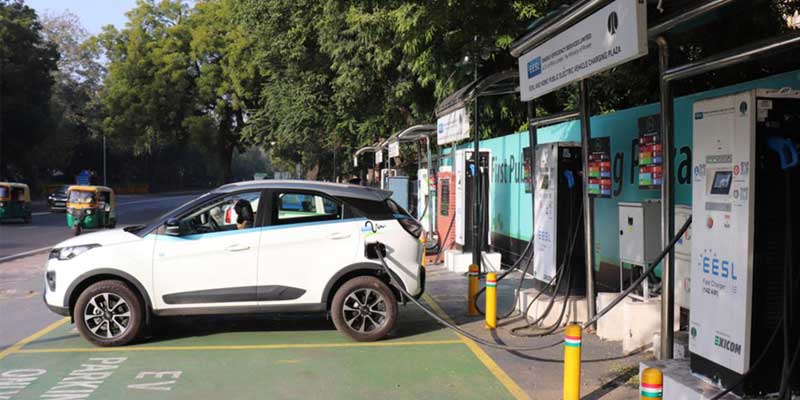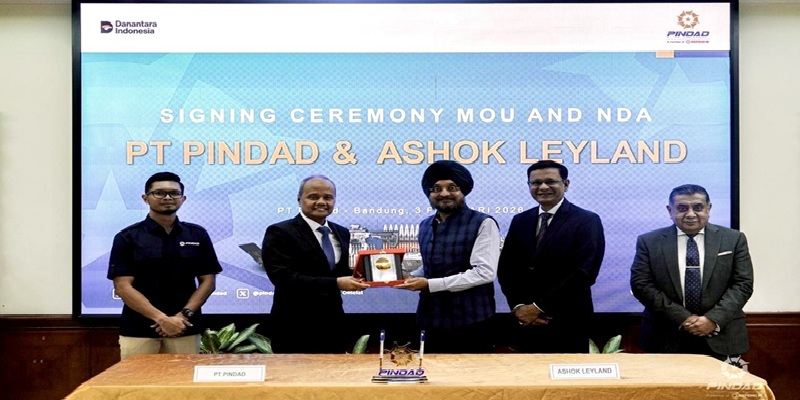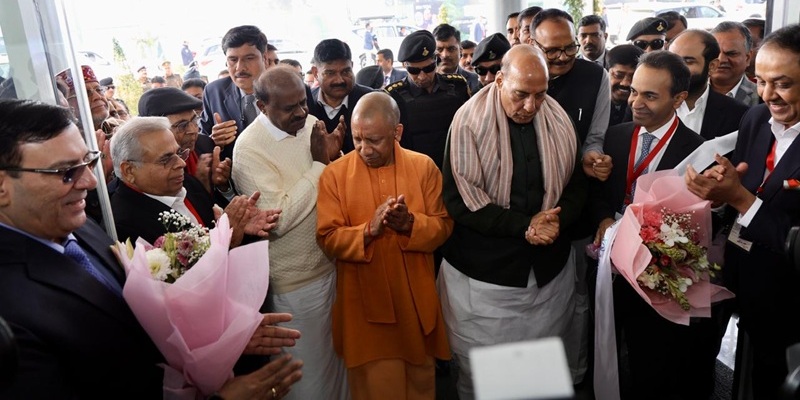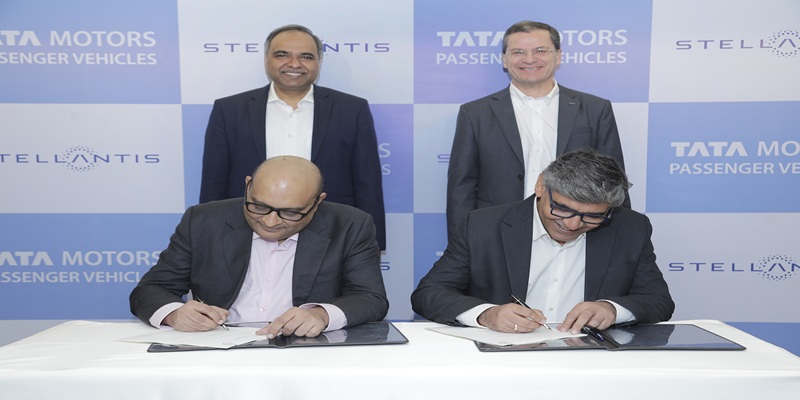Schedule a Call Back
Will new EV policy pave way for Tesla in India?
 Articles
Articles- Mar 30,24

On March 15, 2024, the Government of India (GoI) announced a new Electric Vehicle (EV) policy reducing import duties on four-wheeled EVs from 70-100 per cent to just 15 per cent provided the foreign firm invests a minimum of $ 500 million in EV manufacturing in India. As per the new EV policy, there will be a 3-year timeline for setting up manufacturing facilities in India, and to start commercial production of electric vehicles. A localisation level, i.e. domestic value addition (DVA), of 25 per cent by the third year and 50 per cent by the fifth year will have to be achieved.
“A holistic view has been taken by the Government of India in the best interests of the country. The Indian automobile industry and members of SIAM will adapt to this new policy and remain committed to bring new, innovative & aspirational products and work towards developing a robust EV ecosystem in the country,” said Vinod Aggarwal, President, Society of Indian Automobile Manufacturers (SIAM), and MD & CEO, VE Commercial Vehicles Ltd (VECV).
According to Raman Bhatia, Founder & Managing Director, Servotech Power Systems Ltd, the new electric vehicle policy will make India a global powerhouse for EV manufacturing. “It is a boon for India’s booming economy and acts as a major push forward in the nation’s aspirations for clean transportation. Keeping a strong focus on prioritising domestic manufacturing and encouraging competition and growth, this policy will provide enough chances and harbour enough space to facilitate increasing the adoption of EVs across the nation and aligns with the Make in India initiative promoting local production and job creation.
Duty waiver for big EV car makers
As per the new EV policy, the customs duty of 15 per cent, similar to completely knockdown (CKD) units, will be applicable on imported electric vehicle of minimum CIF value of $ 35,000 and above for a total period of 5 years subject to the manufacturer setting up manufacturing facilities in India within a 3-year period. Import of EVs below $ 35,000 would continue to attract import duty in excess of 70 per cent.
The duty foregone on the total number of EV allowed for import would be limited to the investment made or Rs 6484 crore (equal to incentive under PLI scheme) whichever is lower. A maximum of 40,000 EVs at the rate of not more than 8,000 per year would be permissible if the investment is of $ 800 million or more. The carryover of unutilised annual import limits would be permitted.
In CY23, 42,000 luxury cars were sold in India. Hence, the permission to import a maximum of 8,000 premium EVs per annum at a concessional rate (under the new EV policy) will lead to a market penetration of around 20 per cent.
Considering that India sold 42,000 luxury cars in CY23, the plan to import a maximum of 8,000 premium EVs per annum at a concessional rate will lead to a market penetration of around 20%.
The investment commitment made by the company will have to be backed up by a bank guarantee in lieu of the custom duty forgone. The Bank guarantee will be invoked in case of non-achievement of DVA and minimum investment criteria defined under the scheme guidelines.
“This policy acts as a gateway for large-scale investments from global EV giants like Tesla, making India an EV manufacturing hub globally and providing the much-needed impetus for the local players to enhance their manufacturing capacities and adapt high-tech EV technologies. This healthy rivalry will drive innovation, reduce production costs, and ultimately benefit Indian consumers with a broader range of high-quality, affordable EVs,” said Raman Bhatia.
According to Emkay Global Financial Services, the EV policy aims to promote development of EV ecosystem/local manufacturing in India, while reasonably protecting the Indian OEMs largely operating below the $ 35,000 price point. Nevertheless, there could be some risk to a few of the upcoming models of M&M and Tata Motors at the upper end of the SUV market. It could also potentially impact sales of luxury vehicles (German brands) with increased entry of mid-to-premium EVs at competitive pricing.
While disruption risk (due to electrification) is abating in two-wheeler (2W) segment with stagnating penetration levels and consolidation, passenger vehicles (PVs) are entering a phase of uncertainty around growth (slowing growth), and emerging disruption risks (with potential entry of newer players like Tesla, Vinfast, BYD etc). “Electric 2W adoption is stagnating at about 5 per cent levels (despite increase in discounts recently), with consolidation in favour of larger/established players accelerating (over 80 per cent share now). However, in PVs, competition on the electric front is set to intensify as - apart from launches by domestic majors - international players are also potentially looking to set up facilities. We believe, the PV industry is entering a phase of uncertainty around growth as well as disruption,” stated Emkay Global Financial Services in a statement.
“We highly value the Indian Government’s new EV scheme as it aims to drive large investments in manufacturing, create competencies and upskilling, set up a robust supply chain and offer consumers world-class, zero tailpipe emission vehicles. With a long-term growth commitment in India, we have pledged an expenditure of $500 million, which includes the electric vehicle manufacturing facility in Tamil Nadu. This forward-looking policy help us introduce a wide variety of smart, green, premium-quality SUVs, at the inclusive prices, along with outstanding aftersales policies,” commented Pham Sanh Chau, CEO, VinFast India. In February this year, VinFast, Vietnam's leading electric vehicle manufacturer, began construction work for its first integrated EV manufacturing facility in Tamil Nadu.
Lower tariff: A boon or a bane?
Global Trade Research Initiative (GTRI) views the recent tariff cuts on electric vehicles with a cautious optimism. India’s decision to permit Chinese car manufacturers in the country and reduce import tariffs on EVs will directly or indirectly benefit Chinese companies, particularly as they are major suppliers of EV batteries, stated GTRI in a report.
“While increased affordability could accelerate EV adoption, the report warns against a potential overreliance on cheap imports, particularly from China. The report argues that true progress hinges on indigenous development. Imagine an India where electric vehicles are not just assembled, but meticulously designed and engineered from the ground up. This approach allows us to build EVs specifically tailored to Indian roads and driving conditions. Consider the sturdiness needed for uneven terrains, the efficient battery range required for longer commutes, and the innovative features that cater to diverse customer preferences,” observed Dinesh Arjun, Co-founder and CEO, Raptee.
The GTRI report emphasizes that indigenous development is not just about building electric vehicles; it's about building a self-reliant India. “By prioritising homegrown innovation, we can transform from an importer to a leader in the global EV landscape. This not only ensures long-term economic security but also positions India as a key player in shaping the futuristic automotive industry,” he added.
Experts believe that the new EV scheme is attractive for new global EV makers, but there is a marginal disadvantage to incumbents who have invested in EV manufacturing capacity in India. Last year, Tesla reportedly held talks with the GoI to set EV manufacturing hub in India provided the Elon Musk-owned firm got some duty concessions on imported EV in the initial phase. The new EV provides exactly this. Now, let's wait if Tesla invests in EV plant in India.
Raman Bhatia, Founder & MD, Servotech Power Systems
This policy acts as a gateway for large-scale investments from global EV giants like Tesla, making India an EV manufacturing hub globally and providing the much-needed impetus for the local players to enhance their manufacturing capacities.
Pham Sanh Chau, CEO, VinFast India
We highly value the GoI's new EV scheme as it aims to drive large investments in manufacturing, create competencies and upskilling, set up a robust supply chain and offer consumers world-class, zero tailpipe emission vehicles.
Dinesh Arjun, Co-founder and CEO, Raptee
While increased affordability could accelerate EV adoption, the GTRI report warns against a potential overreliance on cheap imports, particularly from China. The report argues that true progress hinges on indigenous development.
Related Stories

Ashok Leyland, PT Pindad Partner for Electric Buses and Defence Vehicles
Ashok Leyland has signed an MoU with Indonesia’s PT Pindad to jointly develop and manufacture electric buses and defence vehicles, supporting sustainable mobility and modern defence needs.
Read more
Indian manufacturing sector: Negotiating its way in a less VUCA world
India’s manufacturing sector is evolving through policy support, technology adoption and sectoral growth, though challenges in R&D and skilling remain, writes Prof R Jayaraman, Head, Capstone Proj..
Read more
Ashok Leyland opens green mobility-focused greenfield plant in Uttar Pradesh
Designed primarily for electric vehicle manufacturing, the plant has an annual production capacity of up to 5,000 vehicles.
Read moreRelated Products

Automotive Oil Pump
Kalpak Auto Pvt Ltd offers a wide range of
automotive oil pump.
Tata Motors unveils facilities for development of Hydrogen propulsion tech
Tata Motors, India?s largest automobile company, unveiled two state-of-the-art & new-age R&D facilities for meeting its mission of offering sustainable mobility solutions. The unveilings constitute of Read more
Tata Motors plans petrol powertrain for Harrier and Safari SUVs
Tata Motors is in the process of developing a new petrol powertrain for its premium sports utility vehicles, the Harrier and Safari, as confirmed by a senior company official. Currently, these models Read more














